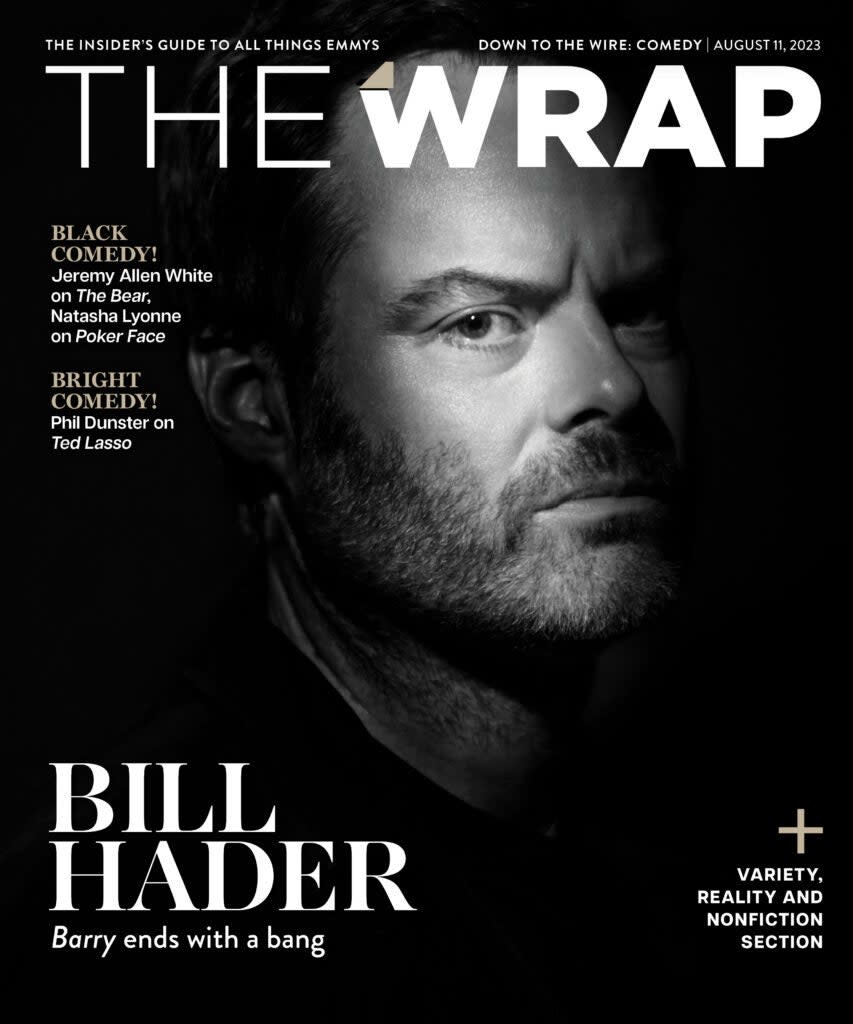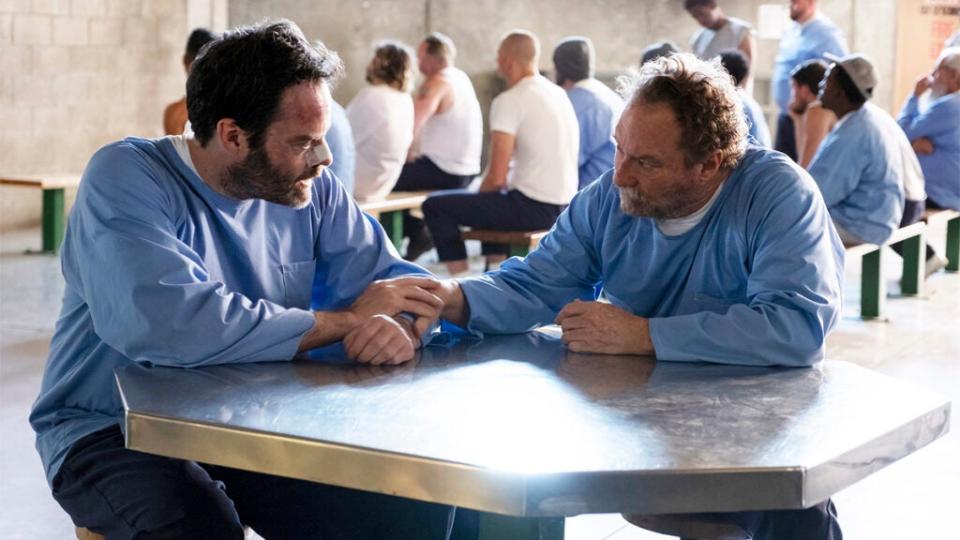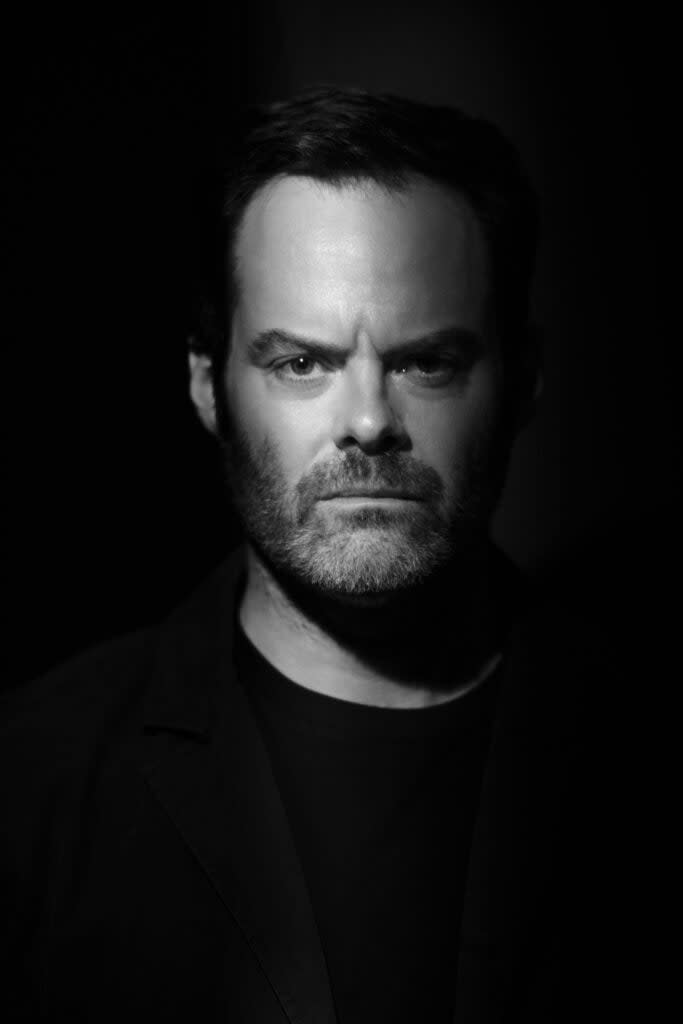Bill Hader Had an ‘Emotional Comedown’ After Ending ‘Barry’
- Oops!Something went wrong.Please try again later.
- Oops!Something went wrong.Please try again later.
- Oops!Something went wrong.Please try again later.
- Oops!Something went wrong.Please try again later.
- Oops!Something went wrong.Please try again later.
This story about “Barry” first appeared in the Down to the Wire: Comedy issue of TheWrap’s awards magazine. All actor interviews in that issue were conducted before the SAG-AFTRA strike began.
Bill Hader had a physical reaction to the end of his HBO comedy series “Barry.” He was wiped out from directing and starring in the entire eight-episode final season to be sure, but he wasn’t prepared to literally ache once the series was over. “It’s like for nine years I had my fist clenched as tight as it possibly could go, fingernails digging into my palms and drawing blood,” he said in an interview conducted the day before SAG-AFTRA went on strike. “And then the day the finale aired they’re like, ‘Alright, you can open your hand now.’ And it’s just like, AHHHH!”
Hader had reason to be relieved. The HBO series debuted in 2018 as the brainchild of the “Saturday Night Live” alum and writer-producer Alec Berg, and the pilot was the first thing Hader had ever directed. The story of a hitman who decides to become an actor was hilarious and distinct but also surprisingly moving, with richly drawn, complicated characters and cinematic storytelling that felt unique for the comedy genre.
Hader won the Outstanding Lead Actor in a Comedy Series Emmy twice and is nominated again this year alongside supporting actor nominees Henry Winkler and Anthony Carrigan. He’s also nominated for directing, writing and producing, with the show picking up Outstanding Comedy Series noms for all of its four seasons. Hader also won three DGA awards along the way for directing episodes in the first three seasons.

Looking back on the pilot, Hader said he felt good about his ability to direct—it had been a career ambition of his even before his successful breakout on “SNL”—and lessons learned on that first episode carried all the way up through the finale. “I’m not confident about a lot of things, but I was very confident that I could direct,” he said with a laugh. “But I didn’t know if I could act and direct. And then as I was directing, I was realizing there’s so much to this job.”
Hader got his biggest lesson in filmmaking in the editing room, where he delivered a 45-minute cut of the pilot that had to be trimmed down to 30 minutes. “I was like, ‘I don’t know what to cut. I have no idea what to cut,’” he said. After taking a day-long break, he came back to find that Berg and editor Jeff Buchanan had trimmed the episode down to time without losing what made “Barry” special. “What that taught me was you’ve got to cut for story,” he said. “The camera angle has to add to the story, the move has to move the character along and that moves the story along as opposed to these arbitrary, cool shots I was trying to achieve.”
That process of valuing storytelling over everything else has been a common thread throughout all four seasons of “Barry;” it’s notable that in an age of supersized TV run times, the longest episode of the final season is a mere 35 minutes. “It’s more about keeping the story focused and everybody’s moving towards something,” he said. “I’ve always reacted to that more than anything else.”
The level of difficulty ramped up in the final season, which included a prison storyline, multiple time jumps (complete with a self-contained episode set in the middle of nowhere that Hader counts as one of his favorites of the series) and an explosive finale that brought this comedy to a deadly conclusion.
Hader wrote the series finale in a single night, initially envisioning a massive gunfight sequence between the crews loyal to Fuches (Stephen Root) and Hank (Anthony Carrigan). “There was a time when it was a shoot-out between two buildings and it was kind of like, ‘OK, we’re gonna save the big fireworks and action for the last episode.’ It might have been a 50-minute finale where 25 minutes of it was just sheer gunfight,” he said. But in outlining the script, he could never quite figure out the specifics of the shoot-out (at one point he pitched drone warfare—“I was really grasping for straws,” he said, laughing), until he came up with a much simpler idea while scouting for locations.
“Like everything, once I made it about the characters it worked. I was like, ‘What if the shoot-out is just over and done with?’” He pitched that idea to his executive producer Aida Rodgers, and they agreed that was the way to go. The resulting sequence plays out in a single shot, the most complex of the season, which lays bare the bloody reality of a bunch of men with guns. “It’s just carnage and it’s guys stupidly shooting each other,” he said. “The whole point of that scene was not to be cool, it was the lead-up to see this badass thing and then it’s like, ‘Look how dumb it was. They all just shot themselves.’”

The finale (spoiler alert!) also finds Hader juggling comedy and drama—a delicate balance throughout the series—as it builds to a moment four seasons in the making in which Hader’s Barry Berkman “finally figures it out” moments before his demise: He has to turn himself in. “He’s like a different person for the last seven seconds of his life when he figures out what he should have done,” Hader said, noting the hilarious irony of the moment. “It’s like an actual, selfless thought went into his head.”
A mixture of confidence and perseverance was key throughout the run of “Barry.” Hader is grateful he got to see this story through to the end, even if at times the storytelling process was frustrating. “I stuck to my guns and HBO was into it—and within that journey, there were a lot of terrible ideas,” he said, laughing as he recalled all the moments or scenes that were written or shot (or even edited) before being jettisoned in favor of better ways to tell the story. “You’re lucking out by getting rid of those and just trying to hone it and make it the best version of itself.”
The actor’s entire face changes as Barry weighs the consequences of his actions. But for Hader the performance didn’t necessitate added preparation—he’s lived and breathed this story for the better part of a decade. “Because I wrote it and I was directing it, (I was) much more confident that (I knew) what the moment is.”
In every interview with Hader about “Barry,” he’s very specific about calling out his collaborators, from his fellow actors to the gaffers and camera operators. He was thrilled to see so many nominated for Emmys this year—not just Winkler and Carrigan, but also cinematographer Carl Herse and editors Franky Guttman and Ali Greer, among others—even if he was bummed to see others left out. “I want to be careful how I say this because I think everybody nominated for supporting actor and actress are great actors and they were amazing on their shows, but I think Sarah Goldberg and Stephen Root were amazing this season,” he said, singling out his two co-stars who didn’t get nominated. “It is a weird thing as a group where you’re all excited and then you see two people who if they weren’t so good, I wouldn’t have been so good. Their work affects me.”

Hader said he’s “very proud” to see the series recognized yet again, but acknowledged the odd discord of celebrating Emmy nominations hours before SAG-AFTRA was due to go on strike and while the WGA was already on strike. “It’s kind of like you’re celebrating your birthday while your parents are getting divorced,” he said with a laugh. “It’s kind of like, ‘Dad’s sleeping on the couch but come on guys, let’s have a birthday party!’ It’s hard to get fully enthusiastic about it all when people are out in the hot sun all day picketing. It’s a very important strike.”
Still, Hader can somewhat relax knowing he spent the last nine years getting to tell this complete story from beginning to end. “Since 2014, all of my energy has been going towards thinking about this show and these characters and being very obsessive about it,” he said. “It’s like an emotional comedown.”
Read TheWrap’s full Down to the Wire: Comedy issue here.
The post Bill Hader Had an ‘Emotional Comedown’ After Ending ‘Barry’ appeared first on TheWrap.

